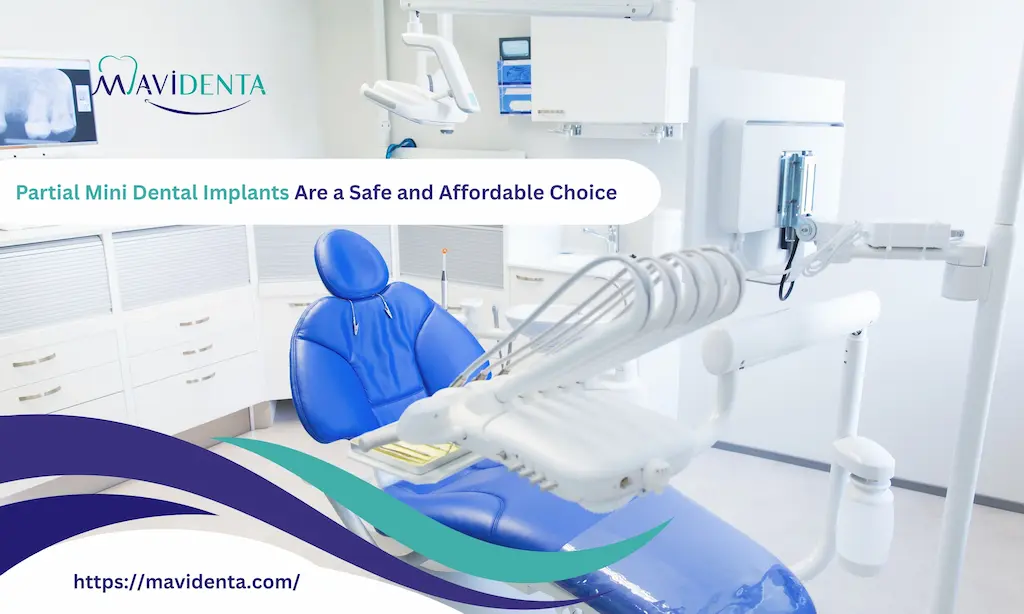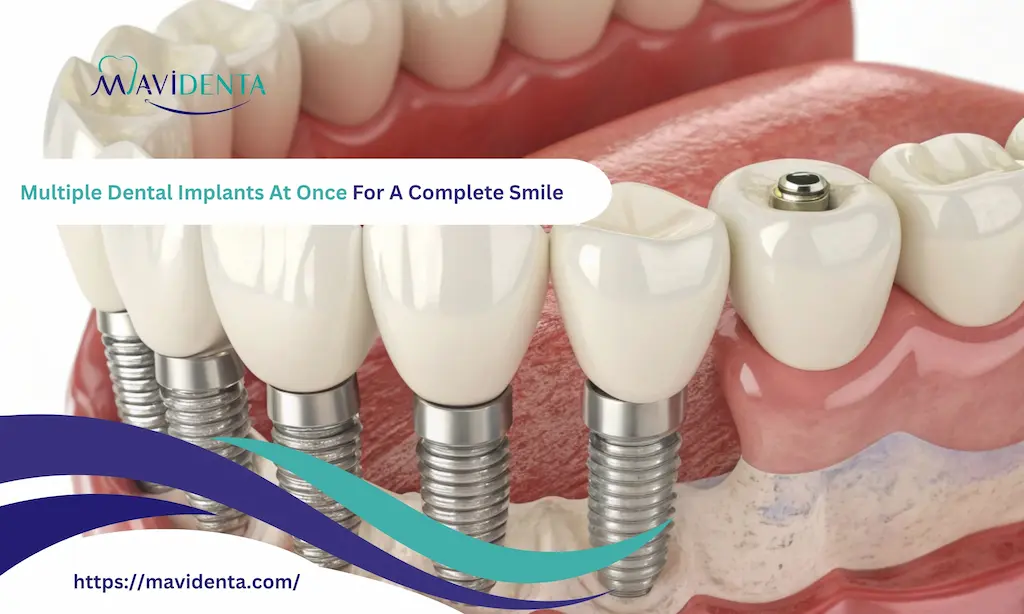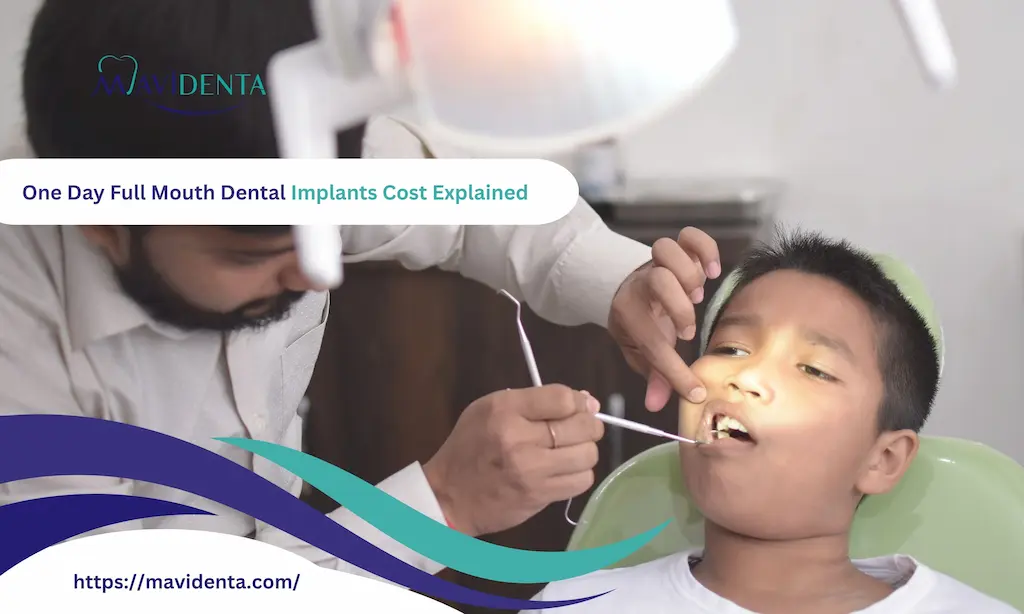Taking care of your oral health can be harder for people who have long-term diseases like diabetes. all on 4 dental implants for diabetics offer an organized and stable option that works well with the healing issues that come with having high blood sugar. New studies have shown that implants can work well when they are put in while strict periodontal and metabolic care is in place.
Are Diabetics Eligible for All on 4 Dental Implants?
- Many diabetics think they can’t get dental implants, but honestly, that’s not true anymore.
- All on 4 dental implants for diabetics are now an actual option—one that works pretty well when your sugar is under control.
- Let’s be real, diabetes affects healing, but it doesn’t mean you’re out of options. Dentists today take your condition seriously. They’ll check your HbA1c, ask about your meds, and plan things in a way that’s safe for you.
- The all-on-4 method is actually helpful here. Why? Because it’s less invasive. Fewer implants, less cutting, quicker healing. That matters when you’re diabetic.
- And the results? You get fixed teeth that look and feel like the real thing. No more awkward dentures or hiding your smile. You eat better, feel better, and honestly—live better.
- If your diabetes is stable, and you’re working with a team that knows what they’re doing, then yes,full implants are possible. You don’t have to settle for less just because you’re diabetic.
Understanding All on 4 Dental Implants for Diabetics:-
- People always talk about how great implants are, and yeah—they help.
All on 4 dental implants for diabetics are definitely impressive, but there are downsides people don’t mention enough. - Firstly, if you have diabetes and your blood sugar levels are unstable, the healing process may not be smooth. That’s just the reality.
Furthermore, since only four implants hold the full arch, if one fails, the whole structure can be at risk. - Another thing cleaning under the fixed teeth isn’t easy. Some patients give up and end up with inflamed gums. Diabetics dental implants need extra care, no way around it.
- Then there’s the cost. It’s not a cheap fix. And once it’s done, there’s no going back. Your natural teeth (if you had any left) are gone.
- People with bone loss, which is common in diabetes mellitus and dental implants cases, may need grafts first, adding more time and cost.
- Bottom line? It works—but it’s not simple and definitely not for everyone. You need to know the full picture, not just the sales pitch.
All on four dental implants cleaning steps and care guide.
The Importance of Blood Sugar Control for Dental Implant Success:-
- Most people don’t realize how much blood sugar affects everything, even dental work.
- All on 4 dental implants for diabetics might sound like a modern miracle,and they are, honestly—but they don’t work unless your sugar is in check.
- If your glucose is high all the time, your body just won’t heal right. The gums stay inflamed, the bone might not hold the implant, and infection risk? It goes way up.
- Dentists care a lot about your HbA1c number. It’s not just a formality. It tells them how your diabetes is doing long-term. If that number’s off, they’ll probably hold off on surgery.
- Diabetes mellitus and dental implants are no longer enemies, but they aren’t best friends either. They need conditions to work together.
- Some people don’t feel the effects of high sugar immediately, but it shows in the healing. Even something like tooth extraction takes longer.
- So yeah, sugar control isn’t optional it’s the foundation. Clean your mouth, follow your meds, and watch your levels.
Pros and cons of all on four dental implants explained.
Benefits of All on 4 Dental Implants for Diabetic Patients:-
Benefit | Description |
|---|---|
| All on 4 Advantage | All on 4 dental implants for diabetics provide a smart solution for full-mouth restoration with less surgical stress. |
| Fewer Implants | Just four posts can support a whole set of teeth, which means less trauma and faster recovery. |
| Predictability | Modern planning tools allow safer placement, even in patients with controlled sugar levels. |
| Better Eating | This treatment helps patients eat better, chew properly, and enjoy meals again without pain or fear of loose dentures. |
| Bone Preservation | Implants reduce bone loss, which is important since diabetes can increase the risk of bone weakening over time. |
| Fixed Teeth | The fixed teeth stay in place—no more soaking dentures or removing them at night. That boosts self-esteem and comfort. |
| Long-Term Results | When diabetes mellitus and dental implants are managed with medical and dental care, the results are long-lasting. |
| Additional Benefits | Patients often report improved confidence, clearer speech, and even better digestion after switching to a full fixed implant system. |
All on 4 Dental Implants Cost Overseas Savings Guide.
Step-by-Step All on 4 Dental Implant Procedure for Diabetics:-
- Everything starts with a conversation. The dentist asks about your health, medications, and how well your diabetes is managed.
- All on 4 dental implants for diabetics aren’t rushed into—they need clearance and stability first.
- You’ll be asked for your HbA1c level. If it’s too high, they’ll ask you to wait and stabilize things before moving forward.
- Once your diabetes mellitus is under control, they take scans of your jaw to check bone quality and density.
- If bone loss is present (common with diabetics dental implants), bone grafting may be needed before anything else.
- On surgery day, any remaining bad teeth are removed, and four implants are placed—usually two straight, two angled for maximum support.
- You might get temporary teeth the same day, or a few days later. You don’t leave the clinic without something to smile with.
- Healing begins. This part is slower in some diabetic patients, which is why follow-up is essential.
- After a few months of healing and checks, the final fixed teeth are attached. The transformation is real.
- Dental implants with diabetes work best when sugar levels stay stable before, during, and after the entire journey.

Caring for All on 4 Dental Implants with Diabetes:-
- Getting the implants is just the beginning; the real success depends on how well you care for them afterward.
- All on 4 dental implants for diabetics require consistent follow-up, good hygiene, and solid sugar control.
- Keep your HbA1c levels in check. High numbers slow healing and raise the risk of diabetes and dental implant complications.
- Brush twice a day with a soft-bristled toothbrush, and clean around the bridges. Leftover food can lead to infection fast.
- Flossing or using interdental brushes is essential for anyone with diabetics dental implants.
- Visit your dentist more often every 3–4 months is ideal, especially with dental implants with diabetes.
- Watch out for early signs of trouble like bleeding gums, soreness, or changes in how the implants feel.
- Eat clean. Controlling your blood sugar helps your mouth as much as your body.
- Avoid smoking it’s one of the biggest causes of implant failure, particularly for patients with diabetes mellitus and dental implants.
- At Mavidenta, the team offers follow-up care designed for diabetic patients, ensuring better outcomes and peace of mind.
Explore the Best Dental Implant Clinic in Istanbul.
What are Potential Risks of All on 4 Implants for Diabetics?
Risk | Description |
|---|---|
| Infections | High blood sugar slows healing, so even small gum wounds can turn into bigger problems. |
| Poor Healing | Implants may not connect with the bone properly, leading to pain or failure. |
| Complications | When considering dental treatments, the disadvantages of All on 4 dental implants include possible gum irritation, surgical risks, and complications if diabetes is not well managed. |
| High HbA1c Levels | If HbA1c is too high, extractions and implant procedures can be delayed or unsafe. |
| Gum Issues | Implants may bring gum swelling or bleeding if oral care is poor. |
| Overall Risk | Dental implants with diabetes are possible, but require careful management. |
| Mavidenta Check | Mavidenta ensures sugar, gums, and overall health are checked before treatment begins. |
Comparing All on 4 with Other Dental Treatment Options for Diabetics:-
All on 4 | Other Dental Treatment Options |
|---|---|
| All on 4 dental implants for diabetics stand out compared to traditional options due to their stability and lower surgical impact. | Diabetic patients often wonder which dental solution is safest and most effective for them. |
| Dental implants with diabetes usually require careful control of blood sugar, but the All on 4 method uses fewer implants and often skips bone grafting. | Removable dentures are less invasive but offer limited chewing power, can cause gum irritation, and often feel uncomfortable. |
| Compared to individual implants, All on 4 uses fewer implants and less surgery, which helps reduce diabetes and dental implant complications. | Bridges require support from surrounding teeth, which may not be ideal in cases of HbA1c tooth extraction or widespread tooth loss. |
| Diabetics dental implants offer a fixed, long-term solution that improves quality of life—something removable options can’t match. | Diabetes mellitus and dental implants can work well together, but only if the technique minimizes healing complications. |
| At Mavidenta, patients receive a full comparison of available solutions based on their medical status and personal goals. | While every case is different, All on 4 is often the most practical and predictable option for people with diabetes. |
Explore the All on 4 dental implants vs snap in dentures full comparison.
Why Mavidenta Is the Best Place for All on 4 Dental Implants for Diabetics?
- Many diabetic patients think implants aren’t possible for them, but that’s not true anymore.
- All on 4 dental implants for diabetics need a clinic that understands more than just teeth—they need to understand your full health picture.
- At Mavidenta, the process starts with checking your medications, blood sugar, and recent HbA1c levels.
- The team has real experience with diabetics dental implants and takes the time to adjust everything based on your condition.
- Unlike many places, they don’t just do dental implants and send you home—they follow up, check healing, and catch problems early.
- This helps prevent common diabetes and dental implant complications like infections or slow healing.
- You also get help with day-to-day care, cleaning routines, and food choices—very important when you have dental implants with diabetes.
- The surgery they offer is less invasive, which is better for healing and reduces risk in diabetes mellitus and dental implants cases.
- If you’re looking for safety, comfort, and honest guidance that fits your health, Mavidenta is the right place to start.
Conclusion
Having diabetes doesn’t mean you can’t fix your smile. Many people think it’s risky, but that’s not always true. With good sugar control and the right care, all on 4 dental implants for diabetics can actually work well. They help you eat better, feel more confident, and avoid loose dentures. But it really depends on the clinic. Maviesta checks your health first and builds a plan around your needs not just your teeth. They take things step by step, and that makes a big difference.
FAQ
Can diabetics get full dental implants?
Yes, they can—as long as their blood sugar is well controlled and their gums are healthy.
Are all on 4 dental implants safe for diabetics?
They’re safe when planned properly with a medical review and stable HbA1c levels.
Is healing slower for diabetic patients?
It can be, especially if sugar isn’t well managed—but not always.
What is the ideal HbA1c for dental implant surgery?
Most dentists look for levels under 7.5% for safer healing.
Are there risks of infection after the surgery?
Yes, but keeping your mouth clean and sugar stable lowers that risk a lot.
Can I get all on 4 if I’ve lost all my teeth?
Yes, that’s actually what this procedure is made for.
Do dental implants with diabetes last as long?
Yes—if cared for properly, they can last just like in non-diabetic patients.







